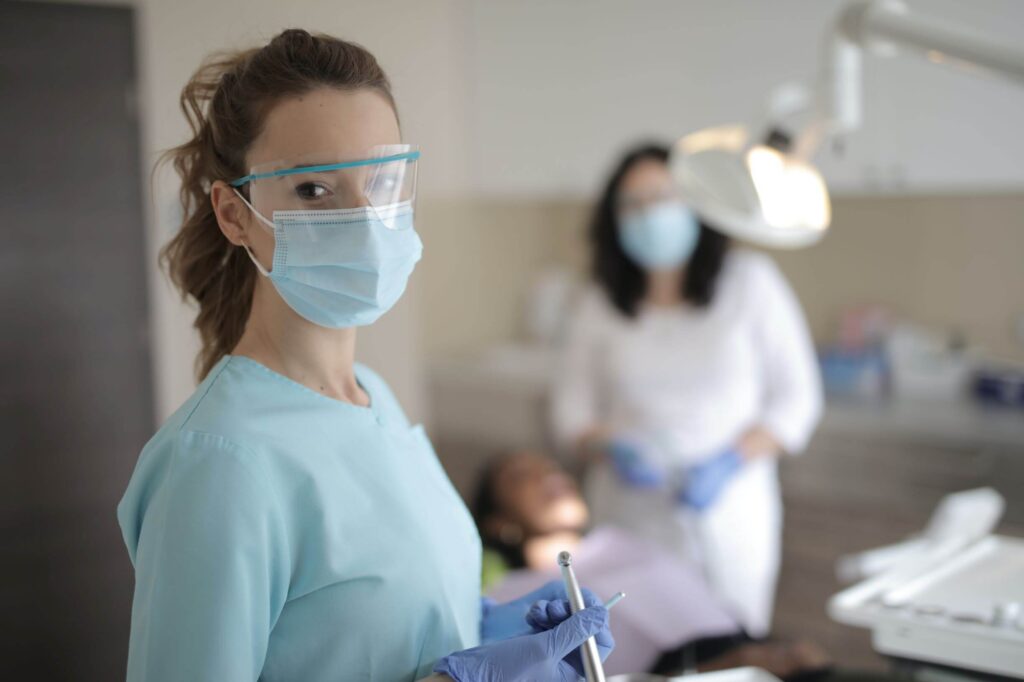Medical professionals are just as susceptible to addiction as anyone else. In fact, they may be more so as they tend to have more access to certain addictive substances. Addiction among dentists can cause major issues in their ability to practice their profession, which is why treatment for dental professionals is so critical to their career and to their health and well-being.
Addiction Factors Among Dentists
A dental practice, by its nature, can be isolating, which may be a contributing factor in addiction among dentists. In addition, access to controlled substances, available nitrous oxide, knowledge about how drugs work, a DEA number, and an office space that can be ideal as a place to use drugs can create an environment that aids in the development of substance use problems.
Other factors include the precision and perfection demanded by the profession. This could lead to a diagnosis of obsessive-compulsive disorder and added stress. The dual demands of clinical expertise and small business management of the practice itself can become overwhelming, leading to the dentist turning to drugs or alcohol as they find themselves beginning to burn out.
Practice Impairment
When a dentist is under the influence of or dependent on drugs or alcohol, they are likely to exhibit some level of practice impairment. The American Dental Association (ADA) has incorporated a statement about personal impairment into its Principles of Ethics and Code of Professional Conduct:
It is unethical for a dentist to practice while abusing controlled substances, alcohol or other chemical agents which impair the ability to practice. All dentists have an ethical obligation to urge chemically impaired colleagues to seek treatment. Dentists with first-hand knowledge that a colleague is practicing dentistry when so impaired have an ethical responsibility to report such evidence to the professional assistance committee of a dental society.
An impaired dentist is unable to deliver quality care to their patients. It is important for colleagues who become aware of another dentist’s chemical dependency to intervene in a constructive manner, out of a sense of professional and ethical responsibility. Interventions could involve discussing the issue with the dentist who appears to have a substance use issue and recommending treatment for their addiction.
Substances of Abuse
While opioid dependence is a serious form of addiction among dentists, most researchers have found that alcohol is the substance most abused. Dentists have reported that alcohol is typically readily available in social settings and, in fact, their alcohol abuse may have developed during dental school when many students started using alcohol and drugs in an attempt to cope with the stress.
According to the ADA Dentist Health and Wellness Committee, alcohol is the drug of choice for 37% of dentists with substance abuse problems, while 31% use prescription drugs (opiates), 10% use street drugs, and 5% use nitrous oxide. Other substances of abuse include cigarettes; marijuana; major opiates such as morphine, fentanyl, meperidine, hydromorphone, and oxycodone; minor opiates such as hydrocodone and codeine; and anxiolytics such as alprazolam and diazepam.
Specialized Treatment for Dental Professionals
Dentists who want to overcome their addiction and continue in their practice will need to seek quality, specialized treatment. There have been excellent recovery rates recorded among dental professionals who have been adequately treated for their addictions. It is up to the individual, of course, to be diligent about participating in ongoing treatment recommendations and monitoring programs for success in recovery.
A bonus of treatment for addiction among dentists is that many have found their illness has actually made a qualitative difference in their practices. Their experience with addiction, a chronic illness, and recovery has made them more empathetic, more compassionate, and better able to deal with stress on a number of different levels.
Contact Providence for Effective Addiction Treatment for Dental Professionals
Addiction among dentists is a serious issue that must be addressed. A dentist who does not get treatment can run the risk of providing improper care to a patient. At Providence Treatment in Philadelphia, we are committed to helping you improve your life when you are struggling with the debilitating effects of alcohol and drug addiction. We provide the individualized cutting-edge treatment you need, as a dental professional.
During COVID-19, we offer HIPAA-compliant telehealth to support you while keeping everyone safe and healthy. You can overcome addiction with outpatient treatments at Providence Treatment. If you need help, contact us at 484.321.8297.









